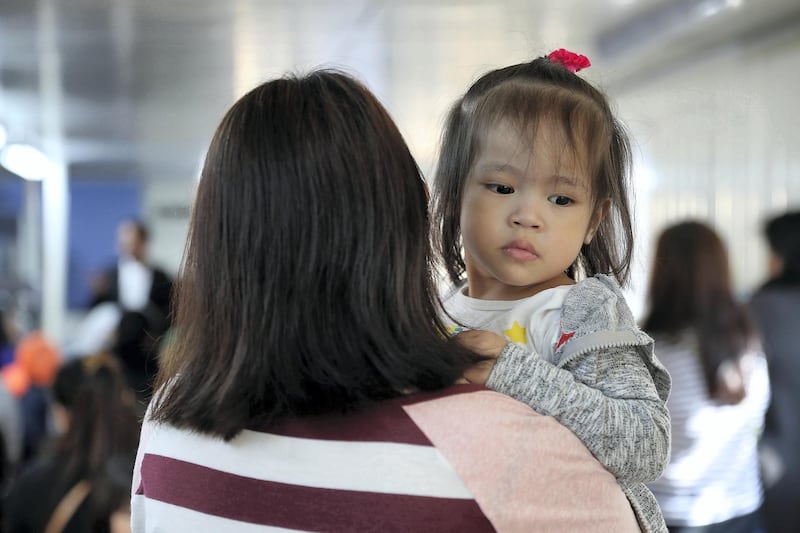Women jailed for having illegitimate children while working in the UAE could be freed and allowed to return home, it has been revealed.
Senior immigration officials said a new amnesty may permit some mothers currently serving sentences for giving birth to undocumented children the opportunity to apply for release.
Under UAE law, it is illegal for anyone to have sex outside of marriage. As a result, many migrant workers — particularly young housemaids — have been sent to prison for having children, following extra-marital affairs.
On Sunday, Maj Gen Mohammed Al Marri, director-general of the General Directorate of Residency and Foreigners Affairs (GDRFA), said the new plans would "facilitate procedures" for jailed mothers to apply for their and their children's release.
He cautioned that while not every applicant would be considered, a dedicated team was now in place as part of the amnesty to "help these women".
“The amnesty will facilitate procedures for mothers who had illegitimate children and will co-operate with police on this issue,” he said.
“A humanitarian section at immigration centres in Dubai will be dedicated to helping these women, although several procedures will need to be followed first.
"This will include a DNA test to prove the biological relationship between the woman and the child."
The UAE's new amnesty — formally announced by officials last week — will start on August 1 and run for three months.
Under the scheme, illegal residents will be permitted to leave the country without facing a fine or a future ban on entry.
Brig Saeed Rakan Al Rashed, director of residency affairs at the Federal Authority for Identity and Citizenship, urged those without visas to come forward and either apply to amend their residency status or agree to return home.
He said nine specialist immigration centres would be established across the UAE in an effort to help co-ordinate the programme and allow applicants to apply. Each will operate from 8am to 8pm on weekdays and include centres in Al Shahama in Abu Dhabi and Al Awir in Dubai.
Currently, up to 74 children are believed to be detained with mothers serving jail sentences in the UAE for criminal offences.
The children, all below the age of 6, are mostly Filipino or African, and are being held in Dubai Central Prison.
Some of the mothers were jailed for living in the country illegally or for having sex outside of marriage, according to statistics last month by Dubai Police.
“Thousands of illegal residents are expected to turn up to our dedicated immigration centres during this amnesty,” Maj Gen Al Marri said.
“There are so many scenarios where a person may have felt forced to live in the country illegally," he added. "Some of the cases can be incredibly complicated."
The announcement that mothers jailed alongside their undocumented children could be freed was met with some cynicism among foreign embassy officials.
A spokeswoman for the Philippine Consulate said she was reluctant to give "false hope" to the women and was unsure if the amnesty covered such cases.
Emirati lawyer Dr Amirah Al Bastaki also said she remained sceptical of the move, claiming she was unaware of any such guidance provided by the amnesty.
________________
Read more:
Life behind bars: What is jail like for women in Dubai?
Behind bars with the women and children of Dubai's central jail
[ Special report: Unwed expat mothers in legal limbo hope new visa laws will help them ]
________________
“Having consensual sex outside of wedlock is a criminal offence according to article number 365 of the UAE penal code and is punishable by up to a year in prison," she said.
"The amnesty visa rules — which are a great move — includes those who have overstayed their visas. It does not mention women who have committed the crime of having sex outside of wedlock."
Maj Gen Al Marri said representatives from several consulates would be present at the nine immigration centres dealing with the amnesty.
He added that transport to the centres would also be provided, with the Roads and Transports Authority laying on special buses to ferry individuals to the centres.
He said: “Those who entered the country illegally will be dealt differently. A section will be dedicated for them to identify where they came from and how they managed to enter the country."






